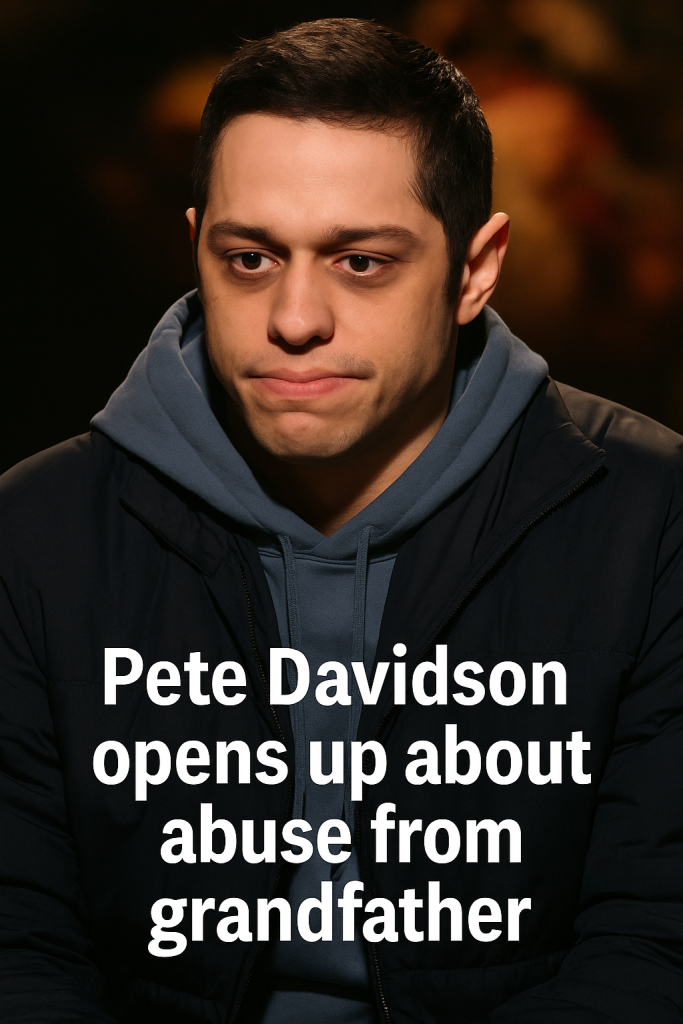Comedian and actor Pete Davidson has opened up in a candid and raw interview about his harrowing experiences with his grandfather, revealing the deep emotional scars left by years of abuse. In a shocking confession, Davidson stated that he is “thrilled” to see his grandfather die slowly—a remark that has caught widespread attention and sparked intense conversations about trauma, forgiveness, and the complex feelings surrounding family abuse.
Davidson’s disclosure sheds light on a dark chapter in his family life that few knew about. The star, known for his sharp humor and vulnerability, shared that the abuse inflicted by his grandfather profoundly affected him growing up, leaving an indelible mark on his mental health. While many public figures carefully guard such personal details, Davidson’s openness has been praised for its bravery and honesty.
“It’s complicated,” Davidson acknowledged during the interview. “My grandfather was a source of so much pain for me, and I never understood why. Part of me just wants to see him suffer the way I did.” The comedian’s blunt admission highlights the emotional turmoil that can linger when abuse comes from within the family, making reconciliation or peace extraordinarily difficult.
Experts who study the psychology of abuse emphasize that feelings like Davidson’s, though difficult to hear, are not uncommon among survivors. “Abuse, especially from a trusted family member, can create deep wounds that manifest as anger, resentment, or even a desire for justice or retribution,” said a clinical psychologist. “It’s a testament to Pete’s honesty that he expresses his pain so openly.”
Davidson has historically been candid about his struggles with mental health, including battles with depression, anxiety, and borderline personality disorder. The revelation about his grandfather adds crucial context to his ongoing openness about how trauma continues to shape his life and work. It also aligns with his advocacy for mental health awareness and the need to address abuse openly rather than burying it in shame.
In sharing his story, Davidson also touched on the complexity of emotions survivors often face when dealing with an abuser’s mortality. “People expect me to say I wish him peace or forgiveness, but I can’t just switch off years of hurt,” he explained. “Sometimes, you need to acknowledge the darkness before you can truly heal.”
The public response to Davidson’s admission has been mixed but largely supportive. Fans and mental health advocates have praised him for using his platform to spotlight the often taboo subject of elder family abuse. Many have also expressed sympathy, recognizing the difficulty of confronting such personal pain in the public eye.
As Davidson continues to navigate his personal journey, this revelation serves as a powerful reminder of the lasting impact abuse can have and the courage it takes to confront one’s past honestly. His story may inspire others facing similar struggles to seek help and speak out, helping to break the silence around family abuse and its long-term emotional consequences.
Ultimately, Davidson’s raw and unfiltered interviews bring a critical human element to discussions about abuse and mental health, encouraging empathy and understanding in conversations that are too often brushed aside.



